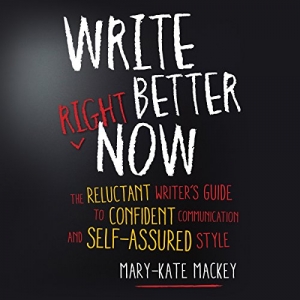Create Tension in Blogging for Business
“Even a small amount of tension in your writing can move it from flat to fascinating,” Mary-Kate Mackey tells writers in Write Better Right Now. Just as bending a flat metal rule into an arc, she advises, think “arc” in setting up questions in readers’ minds. In a well-written paragraph, each sentence launches from the last, with paragraphs positioned along the larger arc of the whole piece.
Because our Say It For You team focuses its writing on blog marketing, I particularly appreciate one marketing example Mackey offered. The assignment – a travel agency pitching the town of Lily Pond, Arkansas.
The first version lacks tension:
“The small town of Lily Pond offers much for anyone willing to leave the interstate.” That’s a yawn, Mackey says – lots of places have lots of amenities to offer.
A better version, one with tension:
“FUN THIS WAY – That sign doesn’t exist on the interstate exist for Highway 58. But it should.”
Richard Anderson’e Powerful Writing Skills makes the same point about conveying a sense of enthusiasm through your writing. “Don’t be satisfied with putting down data and results or observations and opinions,” Anderson says.“ Find a way to make this information meaningful to your reader.”
But, really, can that be done? Can we, over months and years, continue to “have something to say” related to our field, keeping our blog posts relevant over long periods of time without losing reader excitement and engagement? The answer (extraordinarily simple, yet extraordinarily difficult): We have to keep learning, constantly adding to our own body of knowledge – about our industry or professional field (and in the case of our content writing team, about those of our clients).
One interesting parallel is found in ballroom dancing, my own beloved hobby over the years. “Dancing would be impossible without a certain amount of tension,” explains danceforums.com. “In time and with practice you will learn to match your leader’s arm tension: when it’s relaxed you will be relaxed, when he is increasing his tension, you will fill it, you’ll match it, and you’ll know he’s up to something,” an instructor explains to females..
In blogging for business, a simple arc gets readers to want to know – What’s the consequence of this tension? What is the business owner or practitioner leading me to? What’s at the end of the arc?






Follow us online!